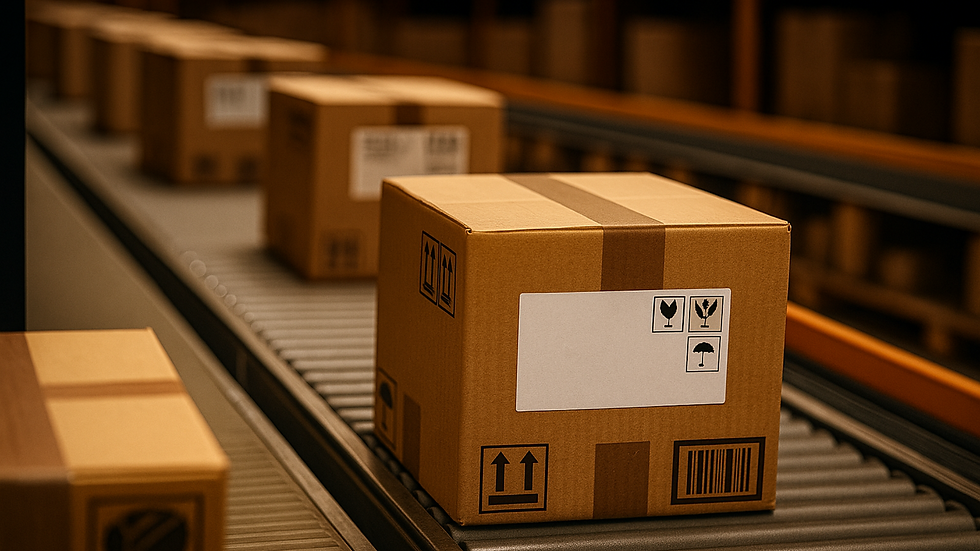Comprehensive Guide to Customs Regimes in Uzbekistan
- Nadira Islamova
- 5 days ago
- 4 min read
Updated: 2 days ago
Navigating the complexities of international trade requires a clear understanding of customs regulations. For businesses importing and exporting goods in and out of Uzbekistan, mastering the local customs regimes is crucial for ensuring compliance, avoiding delays, and managing costs. This guide provides an exhaustive overview of all customs regimes in Uzbekistan, detailing what you need to know to facilitate a smooth logistics process.

What is a Customs Regime?
A customs regime, or customs procedure, is a set of rules that determines the conditions for moving goods across a country's customs border. Each regime specifies how goods are handled, what duties and taxes apply, and what permissions are required. Choosing the correct regime is the first and most important step in customs clearance.
Import Regimes (IM)
These procedures apply when goods are brought into the customs territory of Uzbekistan.
IM-40 - Release for Free Circulation: This is the standard customs procedure for goods intended for domestic use. Imported goods are released for free circulation after all applicable customs duties, taxes and fees have been paid. The owner of the goods under this regime is granted unrestricted discretion over their use within the customs territory of the Republic of Uzbekistan.
IM-41 - Re-Import: This regime is for goods that were previously exported from Uzbekistan and are now being returned. It allows for the re-importation of goods without payment of customs duties and taxes, provided they meet specific conditions, such as being in the same condition as when they were exported within a specified time frame (usually 3 years).
IM-42 - Temporary Import: This regime allows foreign goods to be used within Uzbekistan for a specific period (up to 3 years) with conditional exemption from customs duties and taxes. It's typically used for exhibition goods, professional equipment, or samples. The goods must be re-exported in their original condition or imported under IM-40 regime following import procedures and paying associated costs.
Export Regimes (EX)
These procedures apply when goods are permanently or temporarily moved out of Uzbekistan.
EX-10 - Export: This regime applies to goods of Uzbekistan origin that are permanently exported from the country. Upon declaration, the goods are released from customs control for export.
EX-11 - Re-Export: This regime is for goods that were previously imported into Uzbekistan and are now being exported without undergoing significant processing. For goods originally placed under the "temporary import" regime, re-export is often a required closing procedure.
EX-12 - Temporary Export: This regime is used for goods of Uzbekistan origin that are being sent abroad for a specific purpose (e.g., exhibitions, repairs) and will be returned to Uzbekistan later. Similar to temporary import, it offers conditional exemptions.
Specialized Regimes
These regimes cover specific, often more complex, customs processing scenarios in Uzbekistan. The naming conventions for these can be more varied depending on the context, but the underlying purpose remains the same.
IM-51 - Processing in the Customs Territory: This regime is for goods imported to be processed, repaired, or manufactured into new products. The processed goods are then typically re-exported. This procedure offers conditional exemption from customs duties and taxes upon import.
EX-61 - Processing Outside the Customs Territory: This regime allows for goods of Uzbekistan origin to be exported for the purpose of processing, repair, or manufacturing into new products, which are then subsequently re-imported. This offers a full or partial exemption from import duties on the processed goods upon their return.
IM-70 - Temporary Storage: This regime allows goods to be temporarily stored under customs control without paying duties and taxes for a limited time while awaiting a final customs declaration.
IM-71 - Free Customs Zone: This is a customs regime in which goods are placed and used in certain places and territories without payment of customs duties and taxes, and without the application of economic policy measures.
IM 72 - Duty-Free Trade: This regime applies to goods sold in duty-free shops under customs control. Under this customs regime, foreign and Uzbekistan local goods are sold at retail to individuals crossing the customs borders of Uzbekistan, foreign persons temporarily staying in Uzbekistan.
IM-73 - Free Warehouse: This regime applies to goods placed and used in designated free customs zones or free warehouses. Goods in these zones are considered to be outside the customs territory of Uzbekistan, offering significant exemptions from customs duties, taxes, and economic policy measures.
IM-74 - Bonded Warehouse: This allows goods, both foreign and domestic, to be stored in a special customs warehouse under customs control for a limited period (up to 2 years) without paying duties and taxes. This is often used to defer payments and manage inventory.
IM-75 - Abandonment in Favor of the State: This allows an authorized person to voluntarily abandon goods and transfer them to state ownership free of charge, without the obligation of paying customs duties and taxes.
IM-76 - Destruction: This regime allows for the destruction of foreign goods under customs supervision without the payment of customs duties and taxes.
TR-80 - Customs Transit: This regime is for foreign goods transported under customs control through the territory of Uzbekistan. Goods in transit are exempt from customs duties and taxes, provided they are not used or consumed within the country.
Why Professional Customs Clearance is Essential
Each of these customs regimes has specific requirements, documentation, and deadlines. Misclassifying goods, calculating duties incorrectly, or failing to obtain the right permits can lead to significant delays, fines, and other logistical headaches.
At Delta Global Solutions, we specialize in providing comprehensive customs clearance services across Uzbekistan. Our team of experts understands the intricacies of each customs regime, helping you navigate the process with confidence. We can assist with:
Partnering with Delta Global Solutions means you can focus on your core business while we ensure your goods move across borders efficiently and compliantly. To learn more about our customs clearance services across Uzbekistan and how we can support your business, contact our team today.








Comentarios